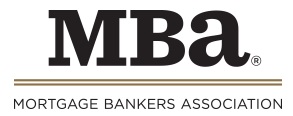WASHINGTON, D.C. – December 2, 2011 – (RealEstateRama) — Henry V. Cunningham Jr., CMB, a member of the Mortgage Bankers Association’s (MBA) Board of Directors and immediate past Chairman of MBA’s Residential Board of Governors (RESBOG), testified today before the House Financial Services Committee at a hearing titled, “Perspectives on the Health of the FHA Single-family Insurance Fund.”
Below is Mr. Cunningham’s oral statement before the subcommittee, as prepared for delivery.
“FHA is at an important crossroads today. Since the onset of the financial crisis, FHA has played an important countercyclical role in our nation’s mortgage market. Considered irrelevant just a few short years ago, the agency is now providing much-needed liquidity during a period marked by the prolonged retreat of private capital.
“I think it is fair to say that the housing recovery, although fragile, would not have taken place without FHA.
“However, FHA’s single family programs haven’t been immune from the historic disruptions that have roiled our markets. And that’s what brings us here today. The Actuarial Report is sobering and calls for a fresh look at FHA’s fiscal health and the role it plays in our housing finance system.
“First, I want to take a minute to examine the steps this committee and FHA put in place that have allowed the agency to better manage its risk exposure. In 2008, Congress passed the Housing and Economic Recovery Act. That legislation terminated the failed seller-funded downpayment assistance programs that were responsible for a disproportionate level of FHA’s defaults. It also permitted FHA to raise its premiums, a tool FHA has used twice over the last two years.
“During that period, FHA has taken other important administrative actions designed to protect its financial stability. These include increasing downpayment requirements from 3.5 percent to 10 percent for less credit-worthy borrowers, eliminating FHA’s approval of loan correspondents, raising lender net worth requirements, re-examining reverse mortgage policies, and establishing the Office of Risk Management. MBA recommended these steps, and commends HUD and FHA for taking these necessary measures in order to reduce taxpayers’ exposure and strengthen FHA for the long term.
“These measures are working. They are allowing FHA to weather the economic downturn and putting it on track to raise its capital reserves above the 2 percent level mandated by the statute. The change in premiums alone has been largely credited by the actuaries for raising FHA’s total cash plus investments by $7.7 billion.
“While these steps have proven successful, FHA is not out of the woods. The Actuarial Report found a nearly 50 percent chance that FHA’s capital ratio could slip below zero, potentially requiring a capital infusion from the Treasury. Another recession or drop in home prices could be a tipping point that causes greater losses at FHA.
“So what can we do to help FHA emerge healthy? An important way we can help FHA is by getting the Qualified Residential Mortgage rule right. As it’s currently proposed, the rule would require a 20 percent downpayment to obtain a QRM, while FHA requires just 3.5 percent.
“The QRM definition appears to conflict directly with the efforts by Congress and the administration to reform the housing finance system. It would make it more difficult for private capital to re-enter the housing finance market and would lead to the over-utilization of FHA’s programs.
“Another key component of putting private capital on the front lines is to revitalize our secondary mortgage market. MBA has put forward a suggested framework for a limited, clearly defined government role in the single and multifamily mortgage markets. Our recommendations carefully balance the government’s ability to ensure liquidity with the need to protect taxpayers from credit and interest rate risks associated with mortgage finance. It is a plan that promotes the return of private capital, while limiting the government’s footprint in mortgage finance, helping the markets function efficiently while protecting taxpayers.
“Mr. Chairman, MBA believes the tools FHA has in place, the strong leadership team at HUD, and continued congressional focus on issues like the QRM and housing finance reform will help FHA emerge from this downturn and allow it to continue playing its important role in the mortgage markets.”
###
The Mortgage Bankers Association (MBA) is the national association representing the real estate finance industry, an industry that employs more than 280,000 people in virtually every community in the country. Headquartered in Washington, D.C., the association works to ensure the continued strength of the nation’s residential and commercial real estate markets; to expand homeownership and extend access to affordable housing to all Americans. MBA promotes fair and ethical lending practices and fosters professional excellence among real estate finance employees through a wide range of educational programs and a variety of publications. Its membership of over 2,200 companies includes all elements of real estate finance: mortgage companies, mortgage brokers, commercial banks, thrifts, Wall Street conduits, life insurance companies and others in the mortgage lending field. For additional information, visit MBA’s Web site: www.mortgagebankers.org.












